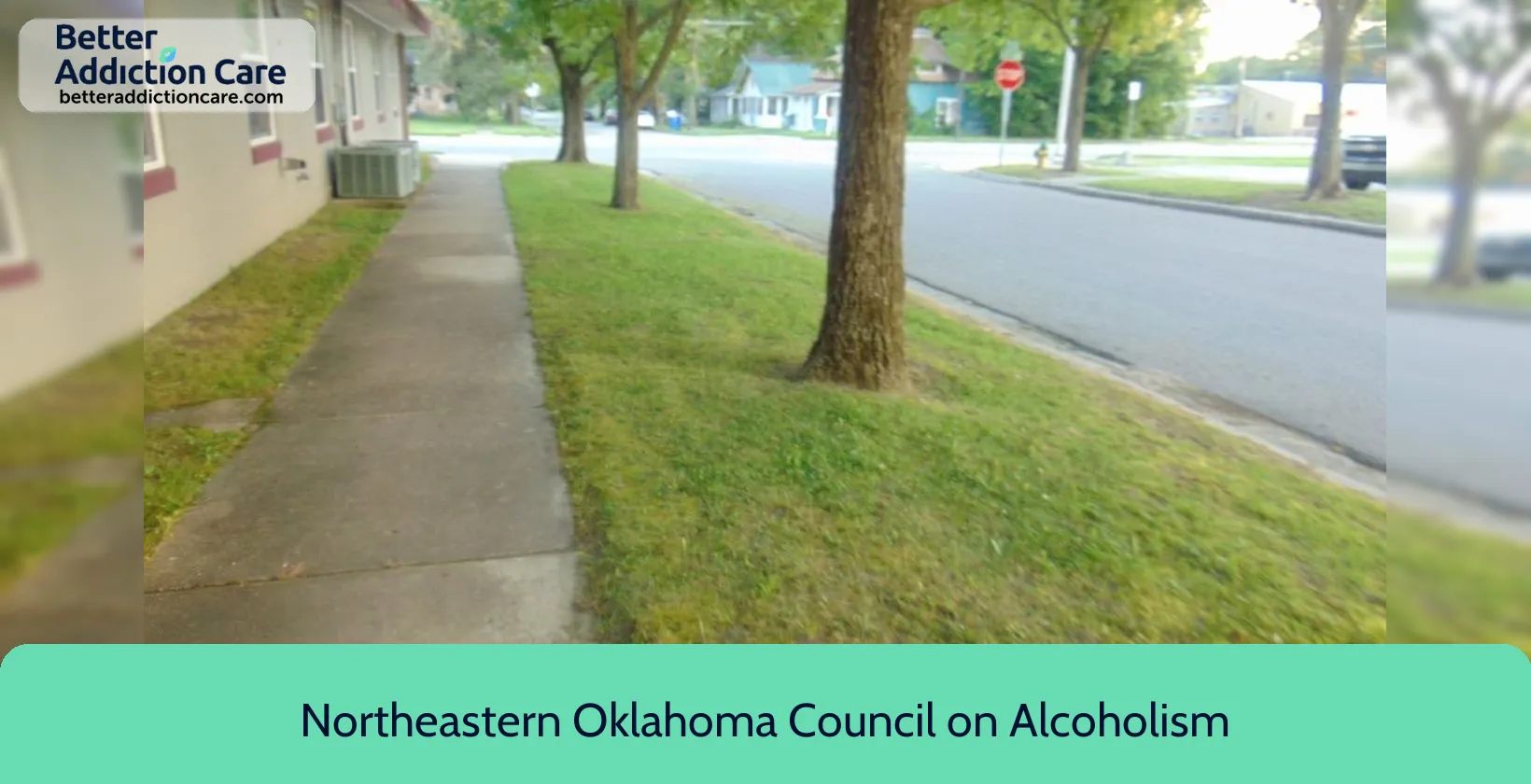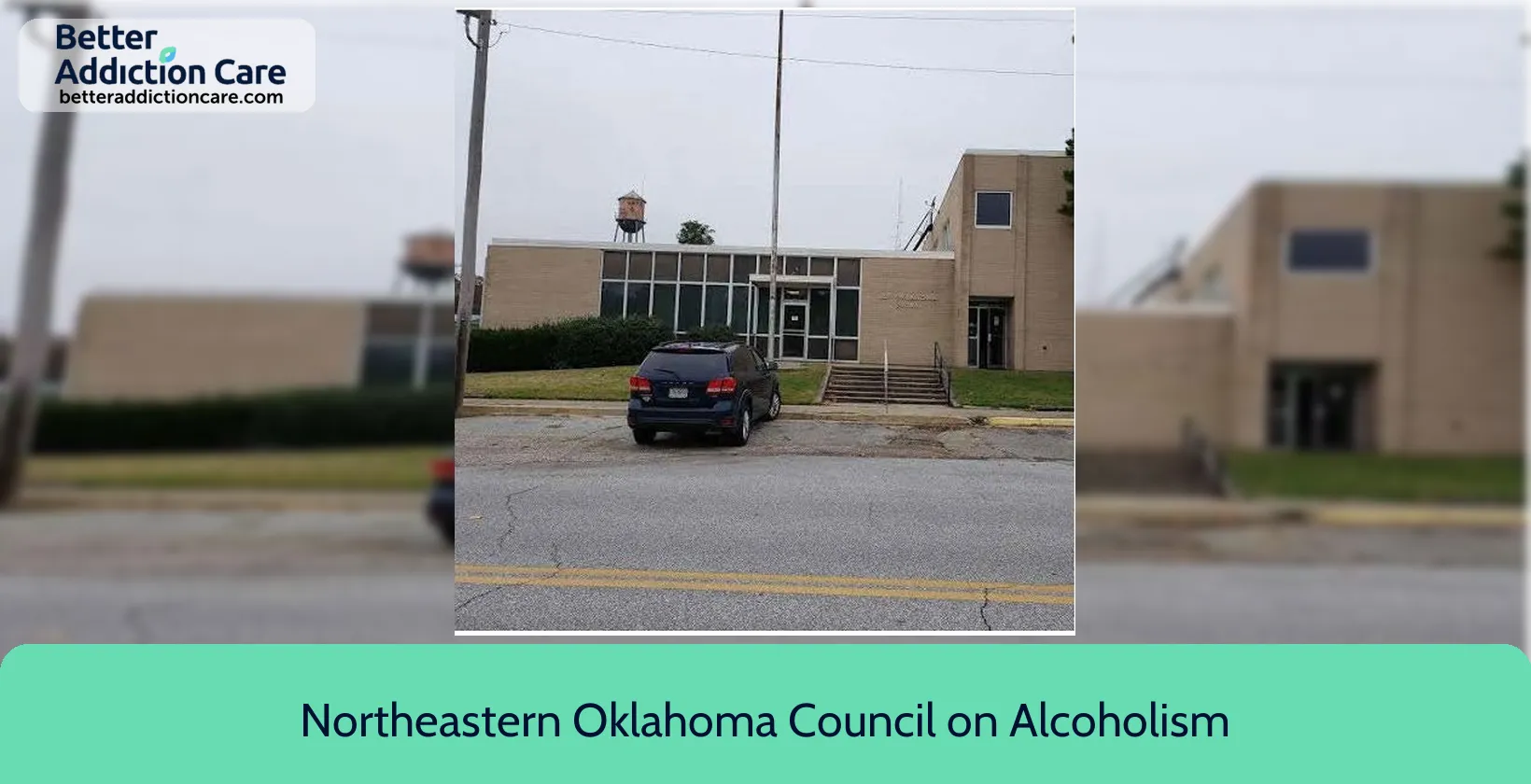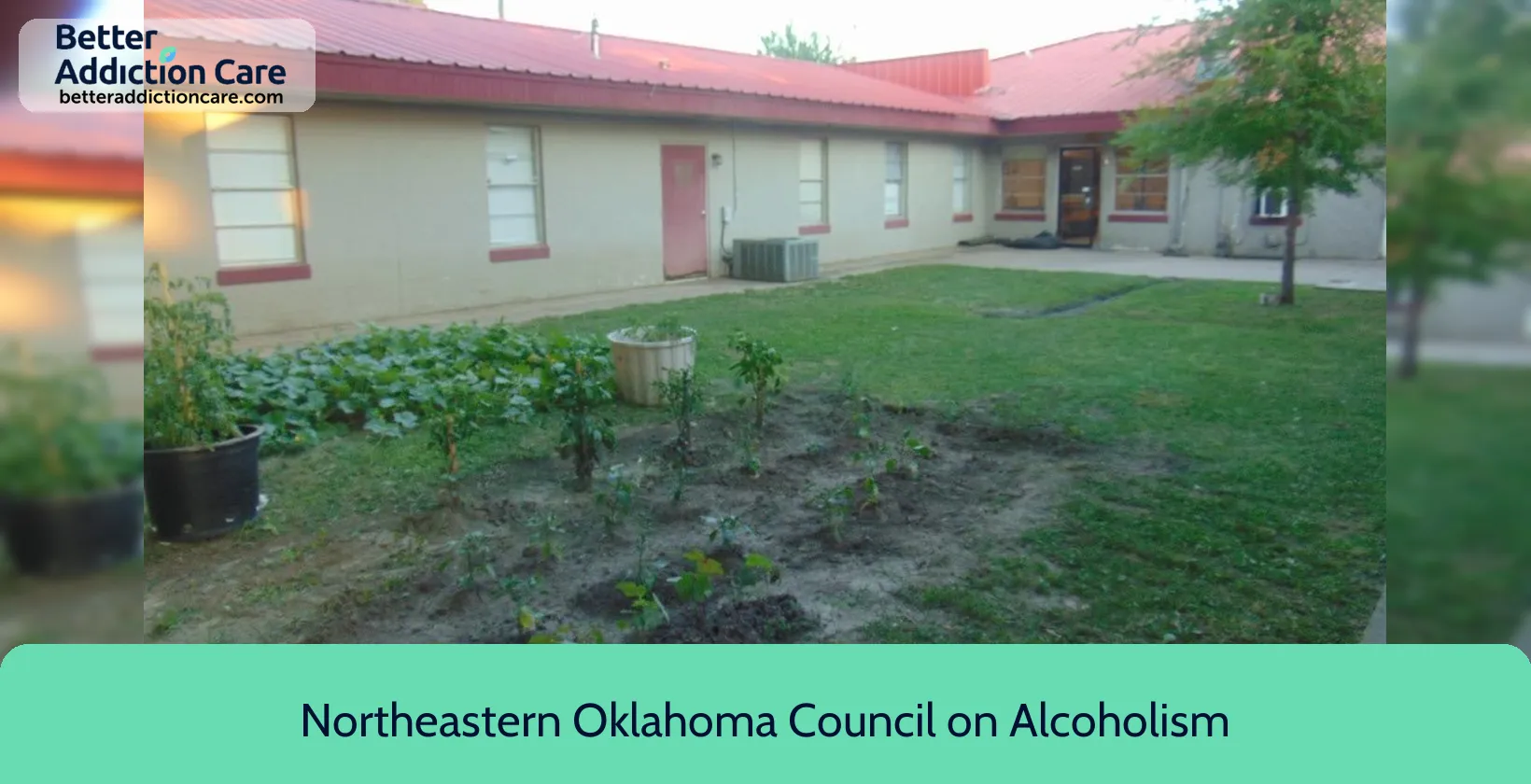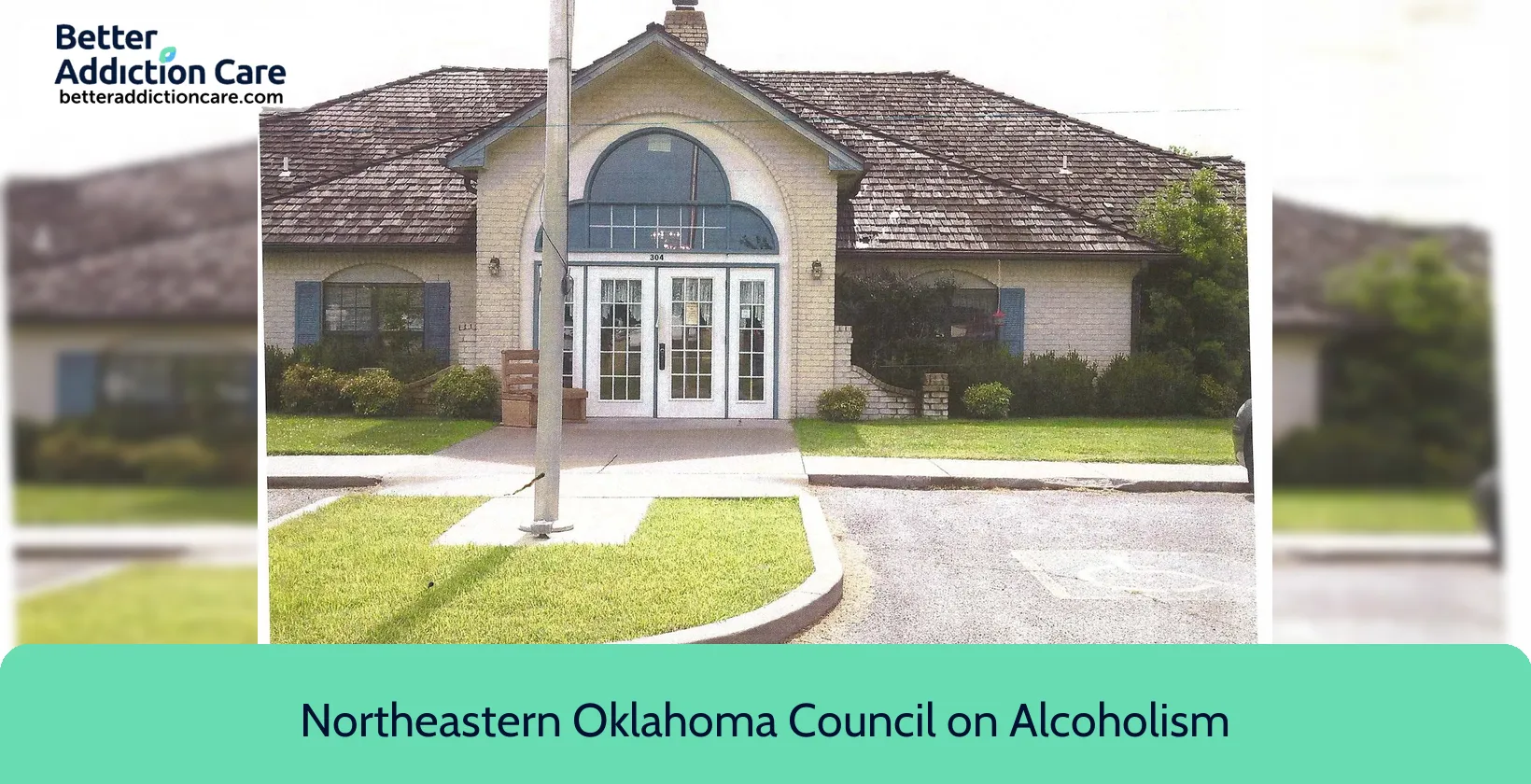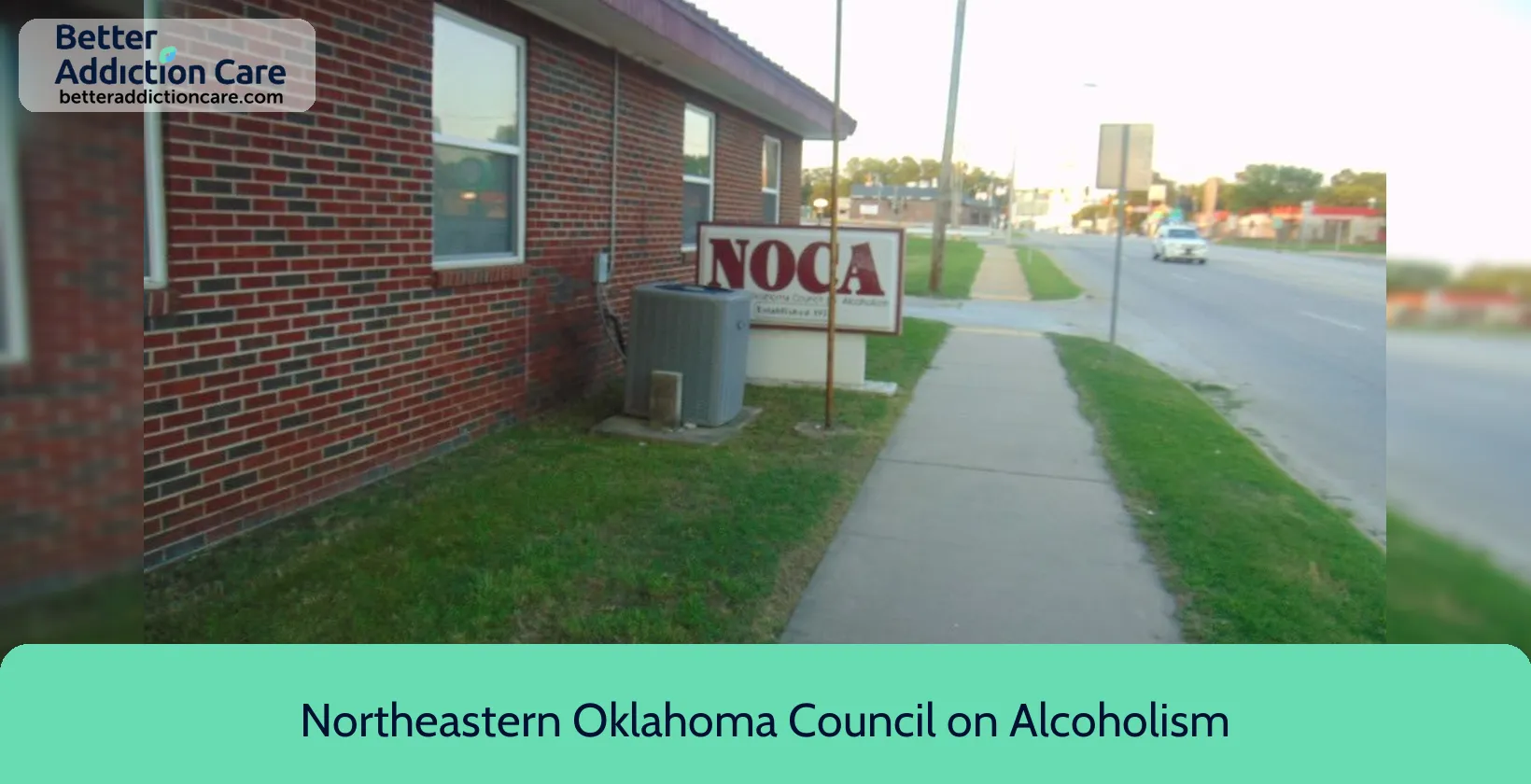Northeastern Oklahoma Council on Alcoholism
Overview
Northeastern Oklahoma Council on Alcoholism is a substance abuse treatment center for people seeking treatment near Ottawa County. As part of their treatment modalities for recovery, Northeastern Oklahoma Council on Alcoholism provides cognitive behavioral therapy, substance use disorder counseling, and trauma-related counseling during treatment. Northeastern Oklahoma Council on Alcoholism is located in Miami, Oklahoma, accepting cash or self-payment for treatment.
Northeastern Oklahoma Council on Alcoholism at a Glance
Payment Options
- Cash or self-payment
- Medicaid
- Federal, or any government funding for substance use treatment programs
- Sliding fee scale (fee is based on income and other factors)
- Payment assistance (check with facility for details)
Assessments
- Screening for tobacco use
- Comprehensive substance use assessment
- Interim services for clients
- Outreach to persons in the community
- Screening for mental disorders
Age Groups
- Young adults
- Adults
Ancillary Services
- Case management service
- Specially designed program for DUI/DWI clients
- Domestic violence services, including family or partner
- Mental health services
- Social skills development
Highlights About Northeastern Oklahoma Council on Alcoholism
6.83/10
With an overall rating of 6.83/10, this facility has following balanced range of services. Alcohol Rehabilitation: 8.00/10, Drug Rehab and Detox: 6.00/10, Insurance and Payments: 6.00/10, Treatment Options: 7.33/10.-
Alcohol Rehabilitation 8.00
-
Treatment Options 7.33
-
Drug Rehab and Detox 6.00
-
Insurance and Payments 6.00
Accreditations
State mental health department:
State mental health department accreditation refers to the process of evaluating and certifying the quality and standards of a state's mental health department, ensuring that it provides high-quality services and meets specific criteria for mental health care. The accreditation process is performed by a third-party organization and helps to improve the overall care and treatment of individuals with mental health conditions.
Commission on Accreditation of Rehabilitation Facilities (CARF):

CARF accreditation is a globally recognized certification for rehabilitation and human service organizations. It signifies that an organization meets high-quality standards and is committed to providing top-level care. Achieving CARF accreditation involves a rigorous evaluation process, including on-site surveys. This accreditation enhances an organization's reputation, instills trust in clients and funders, and encourages ongoing excellence in the field.
Treatment At Northeastern Oklahoma Council on Alcoholism
Treatment Conditions
- Alcoholism
- Mental health treatment
- Substance use treatment
- Co-occurring Disorders
Care Levels
- Hospital inpatient treatment
- Short-term residential
- Long-term residential
- Aftercare
- Halfway house
Treatment Modalities
- Cognitive behavioral therapy
- Substance use disorder counseling
- Trauma-related counseling
- Smoking/vaping/tobacco cessation counseling
- Group counseling
Ancillary Services
Languages
- Sign language services for the deaf and hard of hearing
Additional Services
- Pharmacotherapies administered during treatment
- Mentoring/peer support
- Breathalyzer or blood alcohol testing
Special Programs
- Clients with co-occurring mental and substance use disorders
- Veterans
- Criminal justice (other than DUI/DWI)/Forensic clients
- Clients with HIV or AIDS
- Clients who have experienced trauma
Get Help Now
Common Questions About Northeastern Oklahoma Council on Alcoholism
Contact Information
Other Facilities in Miami

6.71

6.74
DISCLAIMER: The facility name, logo and brand are the property and registered trademarks of Moccasin Bend Ranch, and are being used for identification and informational purposes only. Use of these names, logos and brands shall not imply endorsement. BetterAddictionCare.com is not affiliated with or sponsored by Moccasin Bend Ranch.
